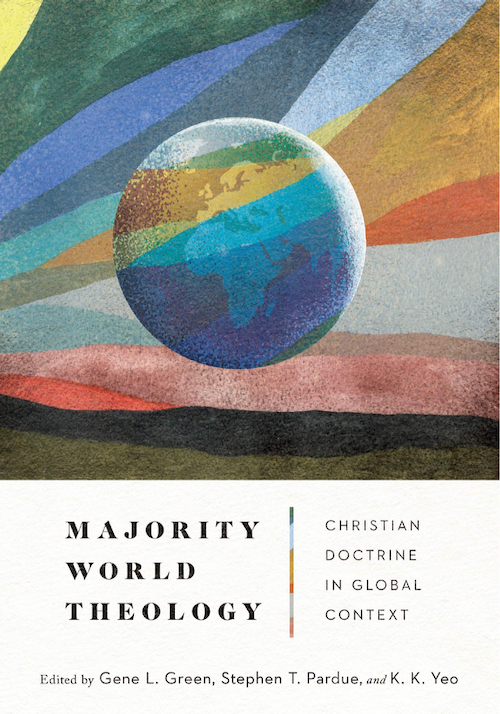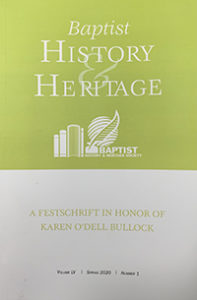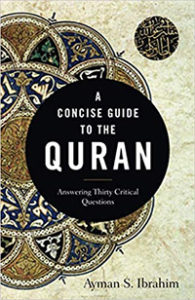Review: Chasing Vines
Chasing Vines: Finding Your Way to an Immensely Fruitful Life
By Beth Moore (Tyndale)
For more than 25 years, Beth Moore has found God’s way to fruitful living through in-depth study of Scripture. She has shared those insights in writing and by teaching Bible studies, speaking and leading women’s conferences, and encouraging others to love and serve Jesus. She expands and extends her ministry to all Christians in Chasing Vines: Finding Your Way to an Immensely Fruitful Life.
 The volume’s inspiration comes from a trip to Tuscany she shared with grown daughters Amanda and Melissa. Everywhere she looked and everything she learned led her thoughts to vines in the Bible. Although the Living Proof Ministries founder wrote Chasing Vines before the pandemic, Moore’s chosen Scriptures, illustrations and information about the vineyard, the vinedresser, the vine, the fruit and the harvest provide greater meaning today. That’s particularly true in her writing on the death of stability in the sections on soil and roots: “We just want some semblance of our old lives back. The hard truth is, there’s no real going back. But once we get up again, there can be going forward.”
The volume’s inspiration comes from a trip to Tuscany she shared with grown daughters Amanda and Melissa. Everywhere she looked and everything she learned led her thoughts to vines in the Bible. Although the Living Proof Ministries founder wrote Chasing Vines before the pandemic, Moore’s chosen Scriptures, illustrations and information about the vineyard, the vinedresser, the vine, the fruit and the harvest provide greater meaning today. That’s particularly true in her writing on the death of stability in the sections on soil and roots: “We just want some semblance of our old lives back. The hard truth is, there’s no real going back. But once we get up again, there can be going forward.”
Chapters related to planting, inspection, pruning and the importance of soil, roots, trellises and yes, even manure, offer principles, promises and parables from Scripture. Moore uses carefully crafted language to paint vivid word pictures describing vines and their grape-growing requirements. She emphasizes the importance of deep roots in the Father to bear fruit of his love. Otherwise, “all fruit is plastic.”
Like the vines she describes, Beth Moore’s spiritual roots have grown deeper and her fruit sweeter through challenging times. In Chasing Vines, she shares the result of digging deep into rich Bible soil and encourages chasing scriptural vines, because the “divine Vine” has already issued his call to all.
Kathy Robinson Hillman, former president
Baptist General Convention of Texas
Waco
 Christianity has declined in Europe and North America—from where centuries of missions and theological and biblical study has come. By contrast, Christianity has grown significantly in Africa, Asia and Latin America—the three continents containing the majority of the world’s population. Unfortunately, the vibrancy of theology in the so-called Majority World has been largely overlooked in Europe and North America. Majority World Theology is a response to that oversight.
Christianity has declined in Europe and North America—from where centuries of missions and theological and biblical study has come. By contrast, Christianity has grown significantly in Africa, Asia and Latin America—the three continents containing the majority of the world’s population. Unfortunately, the vibrancy of theology in the so-called Majority World has been largely overlooked in Europe and North America. Majority World Theology is a response to that oversight. Editors at WaterBrook Publishing have given Christian readers a wonderful gift for the new year by compiling nine sermons Eugene Peterson, beloved translator of The Message, preached at Christ Our King Presbyterian Church in Bel Air, Md. Subtitled “How the End of What We Were Reveals Who We Can Be,” this insightful book focuses on the New Testament book of Revelation.
Editors at WaterBrook Publishing have given Christian readers a wonderful gift for the new year by compiling nine sermons Eugene Peterson, beloved translator of The Message, preached at Christ Our King Presbyterian Church in Bel Air, Md. Subtitled “How the End of What We Were Reveals Who We Can Be,” this insightful book focuses on the New Testament book of Revelation. African American Readings of Paul answers those questions through a scholarly examination of how Paul and his writings have been received and interpreted by African American readers of Scripture. As such, it is the first study of its kind. Other authors have considered Black readings and interpretations of Scripture as a whole, but none has focused on the African American reception, understanding and use of Paul.
African American Readings of Paul answers those questions through a scholarly examination of how Paul and his writings have been received and interpreted by African American readers of Scripture. As such, it is the first study of its kind. Other authors have considered Black readings and interpretations of Scripture as a whole, but none has focused on the African American reception, understanding and use of Paul. In fewer than 200 pages, Goheen and Bartholomew provide an easily accessible overview of Scripture as the story of the King and his kingdom, structured in six acts with an intertestamental interlude halfway through the drama. They use as their outline a half-dozen themes: creation, fall, restoration initiated, restoration accomplished, the mission of the church and restoration completed.
In fewer than 200 pages, Goheen and Bartholomew provide an easily accessible overview of Scripture as the story of the King and his kingdom, structured in six acts with an intertestamental interlude halfway through the drama. They use as their outline a half-dozen themes: creation, fall, restoration initiated, restoration accomplished, the mission of the church and restoration completed. This clearer understanding doesn’t come from some kind of secret knowledge, like a newly discovered Gnostic gospel. It comes from reading the Bible as its first readers would have read it, with all the taken-for-granted culture in mind. Two thousand years later and at least one culture apart, we need a new prescription to be able to see all the Bible has to offer. E. Randolph Richards and Richard James have written that new prescription, if we will take up and read.
This clearer understanding doesn’t come from some kind of secret knowledge, like a newly discovered Gnostic gospel. It comes from reading the Bible as its first readers would have read it, with all the taken-for-granted culture in mind. Two thousand years later and at least one culture apart, we need a new prescription to be able to see all the Bible has to offer. E. Randolph Richards and Richard James have written that new prescription, if we will take up and read. Kimberly D. Hill, assistant professor of history at the University of Texas at Dallas, examines the reach of W.E.B. Du Bois and Booker T. Washington’s academic dispute beyond African American communities in the United States. She shows how, within the context of Christian missions, their differing educational philosophies were implemented among some of the most vulnerable people in Central Africa.
Kimberly D. Hill, assistant professor of history at the University of Texas at Dallas, examines the reach of W.E.B. Du Bois and Booker T. Washington’s academic dispute beyond African American communities in the United States. She shows how, within the context of Christian missions, their differing educational philosophies were implemented among some of the most vulnerable people in Central Africa. Even when people’s attention is on the COVID-19 pandemic and the racial and political tension in the United States, some churches still are examining their posture toward LGBTQ people.
Even when people’s attention is on the COVID-19 pandemic and the racial and political tension in the United States, some churches still are examining their posture toward LGBTQ people. As helpful as popular defenses of Christianity can be, they often are published by popular Christian publishing houses with all the requisite marketing—a fact not lost on skeptics. From the start, Hannah’s book grabs a skeptic’s attention, because it isn’t overtly trying to close a sale.
As helpful as popular defenses of Christianity can be, they often are published by popular Christian publishing houses with all the requisite marketing—a fact not lost on skeptics. From the start, Hannah’s book grabs a skeptic’s attention, because it isn’t overtly trying to close a sale. The festschrift contains six historical essays written by colleagues, friends and former students of Bullock. Each author treats a topic important to her. The essays are written in an academic style. Though off-putting to some readers, the essays are accessible to general readers.
The festschrift contains six historical essays written by colleagues, friends and former students of Bullock. Each author treats a topic important to her. The essays are written in an academic style. Though off-putting to some readers, the essays are accessible to general readers. In I Am Restored, Lecrae’s second book, he discusses his past and trauma he experienced in his childhood. He talks about being sexually and physically abused, being fatherless and struggling with alcohol. He also shares how his past started to come out in poor choices and a crisis of faith.
In I Am Restored, Lecrae’s second book, he discusses his past and trauma he experienced in his childhood. He talks about being sexually and physically abused, being fatherless and struggling with alcohol. He also shares how his past started to come out in poor choices and a crisis of faith. Ibrahim, who directs the Center for the Christian Understanding of Islam at Southern Baptist Theological Seminary, follows a simple and straightforward approach by answering 30 questions about the sacred text of Islam. They range from the basic—“What is the Quran?” and “What do Muslims believe about the Quran?”—to the complex—“Are all Arabic versions of the Quran the same?” and “Why and how was the Quran compiled?”
Ibrahim, who directs the Center for the Christian Understanding of Islam at Southern Baptist Theological Seminary, follows a simple and straightforward approach by answering 30 questions about the sacred text of Islam. They range from the basic—“What is the Quran?” and “What do Muslims believe about the Quran?”—to the complex—“Are all Arabic versions of the Quran the same?” and “Why and how was the Quran compiled?”